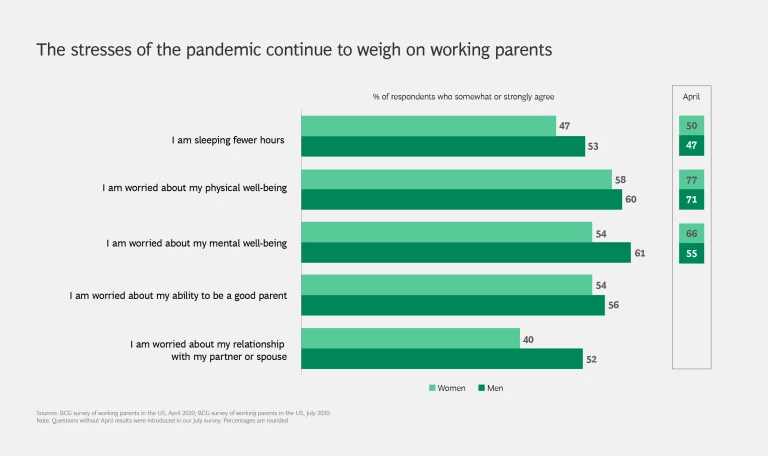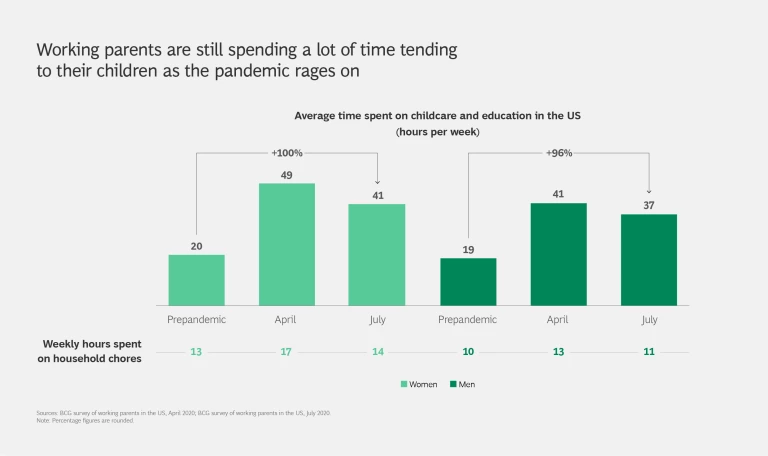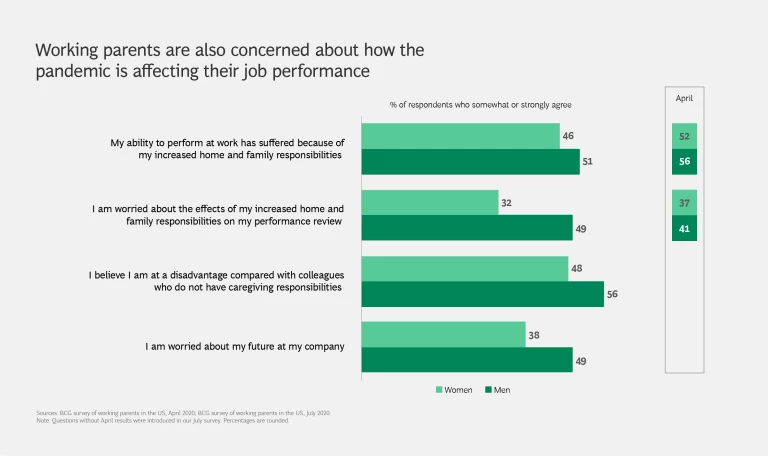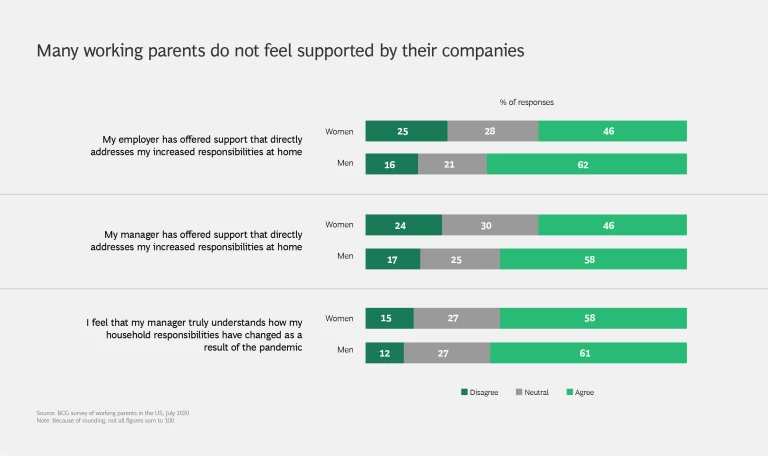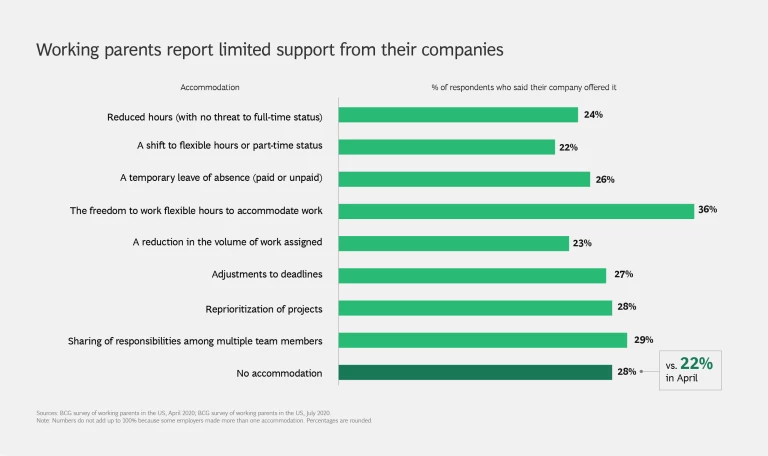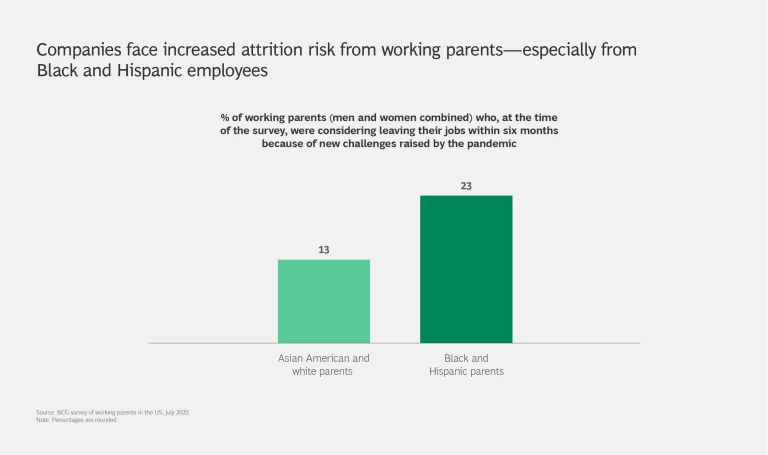The challenge to juggle home and professional responsibilities continues.
Since our April survey —which polled working parents in the US, the UK, France, Germany, and Italy—working parents have continued to struggle balancing work and family responsibilities in the wake of COVID-19. According to our latest survey, conducted in July, parents are still spending significantly greater amounts of time on childcare, education, and housework than they were prior to the onset of the pandemic. (July respondents hailed from the US alone, where the crisis looms largest; see “Survey Methodology.”) They are now devoting, on average, 52 hours per week to these activities, more time than would potentially be spent on an additional full-time job. And these elevated demands on their time stand to continue well into the school year because schools are reopening with a heavy emphasis on virtual or hybrid learning.
In short, parents risk burning out as the pandemic wears on.
Survey Methodology
Simultaneously, working parents continue to face sizable pressures at work. Nearly half of the respondents to our latest survey said that their increased family responsibilities have negatively affected their ability to perform at work and, as a result, that they are at a disadvantage compared with their childless colleagues—a disadvantage that could potentially have a lasting impact on their career trajectories. Many working parents are worried about their professional futures.
The collective stresses working parents face are taking a toll on their physical and mental well-being. Approximately half of the parents we surveyed said they are sleeping fewer hours at night than they were before the pandemic began. Many also said they are worried about their parenting abilities and their partner relationships.
Relatively few companies are supporting this population. Indeed, many parents feel that their companies are largely unsympathetic to their plight; only about 60% of respondents believe that their managers understand the challenges they face and are actively taking steps to address them. And fully 28% of the people we surveyed said that their companies had done nothing. Perhaps unsurprisingly, many working parents are thinking about leaving their jobs. Among Asian American and white respondents, 13% said they were considering leaving within six months; among Black and Hispanic working parents, that number rises to 23%.
Some companies, however, are doing what they can to identify creative solutions that best serve their employees’ needs. The management of a Chicago-based retirement and assisted-living community, for example, created a company-subsidized program to support staff members who have elementary-school-aged children. Staff can leave their children at the on-site, adult-monitored “learning pod” facility during work hours, confident that their children are able to complete their e-learning assignments in a safe, secure environment. Similarly, a Boston-based research center increased childcare subsidies and established a backup childcare center for its employees.
Some companies are thinking outside the box. It will be critical, as the pandemic continues, for all companies to increasingly think about and explore the ways they can support working parents in order to retain the best talent for the medium and long terms. The current situation just isn’t sustainable.


